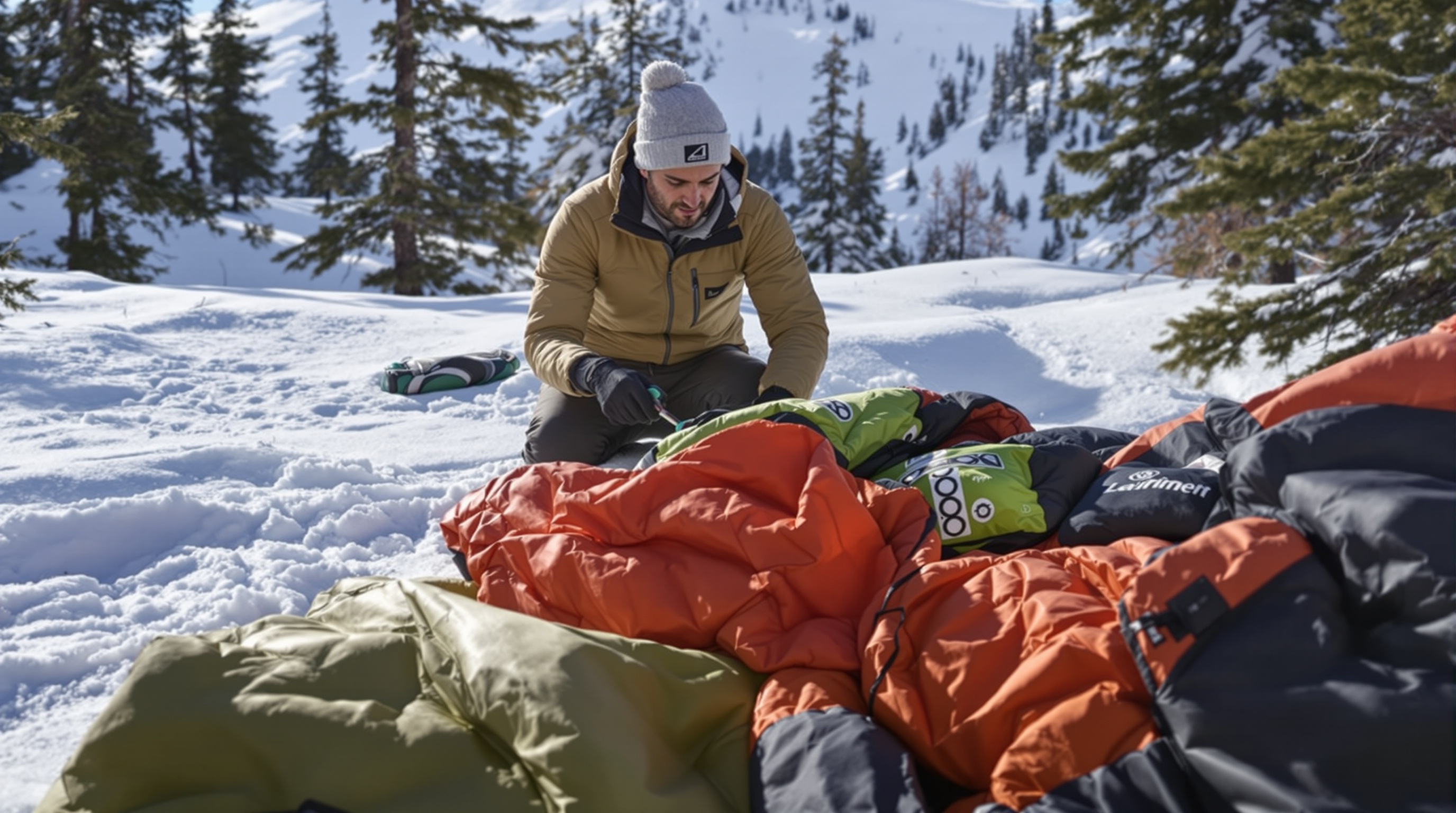Ultimate Adventure Travel Guides for Thrill-seekers in 2024
Embark on thrilling journeys in 2024 with our ultimate adventure travel guides. Discover top outdoor experiences, expert advice, and how to choose the right guided adventure safely and confidently.

Adventure travel guides are essential tools for anyone seeking adrenaline-pumping experiences, cultural immersion, and exploration of remote natural environments. Whether you're planning your first guided trek or preparing for a seasoned climbing expedition, this guide will help you navigate the world of adventure travel—from choosing the right type of journey to understanding safety standards, professional guide services, trip preparation, and emerging trends. Discover how to make the most of your outdoor adventures while ensuring a safe, rewarding, and transformative experience.
Understanding Adventure Travel
Defining Adventure Travel
Adventure travel is a form of tourism that involves exploration or travel with a certain degree of risk, often in remote, exotic, or physically challenging environments. Unlike traditional leisure tourism, adventure travel emphasizes active engagement, personal growth, and cultural immersion. Common elements include physical activity (such as hiking, climbing, or kayaking), interaction with nature, and meaningful experiences with local cultures.
Key Characteristics of Adventure Travel
- Active Participation: Travelers are directly involved in the experience, whether climbing a mountain or navigating white-water rapids.
- Cultural Interaction: Authentic engagement with local communities is a core component, often including homestays, traditional meals, or cultural workshops.
- Element of Challenge: Whether physical, emotional, or psychological, adventure travel typically pushes individuals beyond their comfort zones.
- Environmental Immersion: Many adventures take place in natural settings, promoting both appreciation and conservation of the environment.
Evolution of the Adventure Travel Industry
The adventure travel sector has evolved significantly over the past few decades. What began as a niche offering in the 1970s has grown into a multi-billion-dollar global industry. Companies like Adventure Travel Guides International (ATGI) have played a pivotal role in shaping the modern landscape by standardizing practices, prioritizing safety, and expanding access to high-quality training and experiences.
Key milestones include:
- The rise of eco-conscious travel in the 1980s and 1990s.
- The integration of educational components into adventure programs.
- The development of specialized offerings, such as youth camps and competitive climbing teams.
Types of Adventure Travel
Adventure travel can be broadly categorized into several styles:
- Soft Adventure: Activities with lower risk and skill requirements, such as guided hikes, wildlife tours, or cultural explorations.
- Hard Adventure: High-risk, high-skill activities like mountaineering, backcountry skiing, or technical rock climbing.
- Expedition-Based Travel: Extended journeys that involve remote locations and self-sufficiency, often with scientific, educational, or conservation goals.
- Family and Youth Adventures: Programs designed for younger participants or multi-generational groups, with age-appropriate activities and safety protocols.
Benefits of Adventure Travel
- Personal Growth: Participants often report increased confidence, resilience, and problem-solving skills.
- Physical Fitness: Many activities promote cardiovascular health, strength, and endurance.
- Environmental Awareness: Firsthand experiences in nature often lead to a stronger commitment to sustainability and conservation.
- Cultural Sensitivity: Deep, immersive travel fosters empathy and understanding of different ways of life.
Safety and Professional Standards
Adventure travel carries inherent risks, which is why professional guidance and structured programs are essential. Organizations like ATGI implement rigorous safety protocols, employ certified guides, and maintain strict participant-to-instructor ratios. These practices are crucial for ensuring both the physical safety and emotional well-being of travelers.
Well-established adventure travel providers often hold accreditations from industry bodies such as:
- Adventure Travel Trade Association (ATTA)
- American Mountain Guides Association (AMGA)
- Wilderness Medical Institute (WMI)
These certifications ensure adherence to best practices in risk management, guide training, and environmental stewardship.
Emerging Trends in Adventure Travel
The industry continues to adapt to changing traveler expectations. Notable trends include:
- Customization: Tailored itineraries that align with individuals’ skill levels, interests, and goals.
- Sustainable Practices: Eco-friendly travel options that reduce environmental impact and support local communities.
- Digital Detox: Experiences designed to disconnect from technology and reconnect with nature.
- Integrated Learning: Programs that combine adventure with skill-building, education, or personal development.
Adventure travel is no longer just about adrenaline. It is increasingly seen as a pathway to personal transformation, cultural connection, and environmental advocacy.
Professional Guide Services
Expert Leadership and Certified Instructors
Adventure Travel Guides International (ATGI) employs a team of highly trained, certified outdoor professionals who bring expertise, passion, and safety-focused leadership to every program. Their guides hold certifications from recognized organizations such as the American Mountain Guides Association (AMGA), Wilderness Medicine Institute (WMI), and Leave No Trace Center for Outdoor Ethics. This ensures participants receive instruction from professionals who adhere to the highest standards in technical skills, risk management, and environmental stewardship.
ATGI’s guides are not only technically proficient, but also trained educators who adapt their teaching styles to suit individual and group learning needs. Whether working with youth, teens, or adults, instructors foster a supportive environment that promotes personal growth, confidence, and a deeper connection with the natural world.
Ongoing Training and Development
To maintain excellence, ATGI implements a structured professional development program for its staff. This includes annual training retreats, scenario-based safety drills, and continuing education in wilderness medicine, climbing technique, and group facilitation. By investing in guide development, ATGI ensures its team remains current with industry best practices and evolving safety protocols.
Additionally, new instructors undergo a rigorous onboarding process that includes mentorship from senior guides, shadowing opportunities, and a comprehensive orientation focused on ATGI’s educational philosophy and operational procedures.
Safety and Risk Management
Safety is a cornerstone of ATGI’s programming. All guides are trained in emergency response, including Wilderness First Responder (WFR) certification or higher. Each trip is planned with thorough risk assessment protocols and equipped with emergency communication tools such as satellite messengers or radios.
Before each program, guides conduct detailed safety briefings, review equipment use, and provide instruction on hazard awareness in climbing and backcountry environments. This proactive approach to risk management enhances participant confidence and ensures a safer outdoor experience.
Educational Philosophy
ATGI’s instructional model is rooted in experiential education principles. Guides facilitate learning through hands-on practice, reflection, and real-time problem solving. This approach promotes not only technical skill acquisition—such as belaying, route setting, and anchor building—but also soft skills like communication, leadership, and resilience.
The organization also integrates environmental education into its guiding services. Participants learn about local ecosystems, conservation practices, and responsible recreation through interpretive sessions and Leave No Trace instruction, fostering a holistic understanding of the outdoor world.
Personalized and Inclusive Approach
ATGI is committed to creating inclusive outdoor experiences for all participants. Guides are trained in cultural competency, adaptive instruction, and inclusive language, ensuring that every individual feels welcomed and supported regardless of background or ability. Programs can be tailored to meet specific needs, including adaptive climbing instruction and customized group learning goals.
Through a balance of technical instruction, mentorship, and emotional support, ATGI guides empower participants to push personal boundaries and achieve their adventure goals with confidence and clarity.
Planning Your Guided Adventure
Organizing an adventure travel experience—whether a climbing expedition, a summer camp, or a multi-day outdoor journey—requires careful preparation. With organizations like Adventure Travel Guides International (ATGI), travelers benefit from structured, professionally supported planning processes designed to prioritize safety, skill development, and unforgettable experiences.
Choosing the Right Program
ATGI offers a variety of programs tailored to individual goals, age groups, and experience levels. When planning your guided adventure, consider the following criteria:
- Participant Age and Skill Level: ATGI provides differentiated programs for youth, teens, and adults. Each program is designed with age-appropriate instruction and skill-building exercises.
- Adventure Type: Whether you're looking for a summer climbing camp, a private mountaineering lesson, or a group hiking expedition, ATGI’s offerings include both general and specialized options.
- Program Duration: Options range from single-day workshops to multi-week camps. Families and individuals should select a program that fits their availability and commitment level.
- Instruction Method: Choose between individual training for personalized attention or group programs for a shared learning environment.
Expert Consultation and Guidance
ATGI emphasizes the importance of pre-trip consultation. Their experienced advisors assist with:
- Program Matching: Helping adventurers select the program that best suits their interests, goals, and physical readiness.
- Curriculum Overview: Providing detailed outlines of what each program entails, including skill progression, safety standards, and daily itineraries.
- Equipment Guidance: Offering gear checklists and rental options when applicable. ATGI ensures that all participants are equipped appropriately for their adventure.
Registration & Booking Process
Planning begins with a straightforward registration process designed to secure a spot and ensure readiness:
- Online Registration Portal: ATGI’s official website hosts a user-friendly registration system with program dates, availability, and pricing.
- Required Documentation: Participants will need to submit medical information, emergency contacts, and a signed ATGI waiver outlining participation risks and responsibilities.
- Deposit and Payment Plans: Most programs require a deposit to reserve a space, with flexible payment options available for extended programs like summer camps.
Trip Preparation Resources
Once enrolled, ATGI provides a suite of preparation tools to support participants in getting adventure-ready:
- Digital Welcome Packet: Includes travel logistics, packing lists, and health and safety guidelines.
- Pre-Trip Webinars: Optional sessions led by guides and staff to answer questions and outline expectations.
- Fitness Recommendations: For physically intensive programs like climbing, ATGI offers fitness tips and conditioning plans to help adventurers prepare.
Safety and Risk Management
Safety is a cornerstone of every ATGI adventure. Their planning process incorporates:
- Certified Guides: All instructors and guides hold certifications in wilderness first aid, climbing instruction, and group leadership.
- Emergency Protocols: Each program includes well-defined emergency response strategies, satellite communication tools, and access to medical support when needed.
- Risk Assessments: Program-specific risk evaluations are conducted regularly to ensure participant safety and program integrity.
Planning for Families and Groups
For families or groups planning a shared adventure, ATGI provides:
- Custom Group Packages: Tailored itineraries and pricing for family groups, school organizations, or corporate teams.
- Flexible Scheduling: Options to coordinate private group sessions outside of regular camp or program dates.
- Group Support Services: Dedicated coordinators assist with logistics, group dynamics, and on-site support.
Using ATGI’s Planning Tools
ATGI equips travelers with a variety of resources to support their planning journey:
- Seasonal Catalogs: Detailed brochures outlining available programs, dates, and registration timelines.
- Interactive Program Finder: An online tool to filter programs by age, activity, location, and difficulty level.
- Customer Support Line: A dedicated team available to answer questions, provide recommendations, and troubleshoot registration issues.
Planning your guided adventure through ATGI ensures a structured, safe, and enriching experience. Whether you're a first-time climber or a seasoned adventurer, the organization’s tools and expert guidance streamline the process and set the stage for a transformative journey.
Types of Guided Adventures
Guided adventures come in a wide range of formats, each tailored to different interests, skill levels, and desired levels of challenge. Adventure Travel Guides International (ATGI), along with other industry leaders, provides a variety of professionally led experiences designed to deliver personal growth, physical activity, and immersive outdoor exploration. Below are the primary types of guided adventures available through reputable programs and organizations.
Climbing Expeditions
Climbing expeditions are a cornerstone offering of ATGI and similar adventure travel providers. These programs are designed for both beginners and seasoned climbers and typically include instruction in technical skills, route planning, and safety practices. Participants are often guided by certified professionals with experience in alpine, sport, and traditional climbing disciplines.
- Beginner-Friendly Climbs: Ideal for newcomers, these guided adventures focus on foundational techniques such as belaying, knot tying, and movement on rock.
- Intermediate to Advanced Expeditions: These trips may include multi-pitch routes, alpine ascents, or international climbing destinations, and are aimed at climbers ready to challenge their limits.
- Youth Climbing Programs: Especially highlighted in ATGI’s offerings, these adventures are age-specific and include both recreational and competitive elements.
Trekking and Hiking Tours
Trekking adventures offer participants the opportunity to explore remote landscapes on foot, with expert guides providing insight into local geography, ecology, and culture. These guided journeys range from single-day hikes to multi-week treks across mountain ranges or through national parks.
- Cultural Treks: Combine physical challenge with immersion in local traditions and customs, often including homestays or guided village tours.
- High-Altitude Treks: Designed for more experienced adventurers, these involve acclimatization strategies and robust physical preparation.
- Family-Friendly Hikes: Lighter in intensity and shorter in duration, making them suitable for younger participants or multi-generational groups.
Multi-Sport Adventures
For those who crave variety, multi-sport adventures blend several outdoor activities into a single program. These may include combinations of climbing, kayaking, mountain biking, rafting, and more, depending on the destination and season.
- Summer Camps: ATGI and similar organizations often offer youth-oriented multi-sport summer programs that introduce kids and teens to a variety of disciplines in a structured, supportive environment.
- Custom Group Itineraries: Tailored for families or private groups, these adventures can be personalized to match skill levels and interests.
Wildlife and Nature Exploration
Guided nature-based trips focus on discovering diverse ecosystems and wildlife in their natural habitats. These adventures are often led by naturalists or environmental scientists and provide educational components alongside physical activity.
- Eco-Tours: Emphasize sustainability and conservation, often involving visits to wildlife reserves or protected natural areas.
- Photography Expeditions: Combine travel and nature observation with expert guidance on capturing the wilderness through a lens.
- Marine Adventures: Include snorkeling, diving, or sailing experiences that explore coastal and underwater ecosystems.
Winter Sport Adventures
Winter-themed trips cater to those seeking cold-weather thrills and include guided experiences in skiing, snowboarding, ice climbing, and snowshoeing.
- Backcountry Ski Tours: Led by certified mountain guides, these trips explore off-piste terrain and often include avalanche safety instruction.
- Ice Climbing Programs: Offered to both beginners and seasoned climbers, featuring instruction on tools, techniques, and safety protocols.
- Winter Camps for Youth: Similar to summer programs, these provide skill development in snow sports in a supervised setting.
Thematic and Educational Programs
Some guided adventures incorporate a strong educational or thematic focus, blending physical activity with learning opportunities.
- Leadership and Team-Building Retreats: Often used by schools or corporate groups, these experiences promote collaboration, resilience, and decision-making.
- Wilderness First Aid and Survival Skills: Instructional adventures that teach participants how to handle emergencies and navigate the outdoors safely.
- Environmental Stewardship Programs: Participants engage in conservation efforts, such as trail maintenance or wildlife monitoring, while learning about sustainability practices.
Custom and Private Adventures
For travelers seeking a more intimate or tailored experience, many organizations, including ATGI, offer private guided adventures. These can be customized based on activity type, location, fitness level, and personal goals.
- Solo or Duo Adventures: Ideal for individuals or couples looking for focused instruction or a more flexible itinerary.
- Family Adventures: Customizable to include child-friendly activities and pacing.
- Expedition Planning Services: For experienced adventurers, guides may assist with logistics, safety planning, and support for self-led journeys.
These diverse types of guided adventures reflect the evolving landscape of adventure travel, offering something for every age, interest, and ambition level. Whether seeking personal growth, skill development, or pure exploration, guided adventures provide a safe and enriching way to engage with the world.
Making the Most of Guided Travel
Guided travel offers a structured, supportive, and enriching way to explore the world, particularly for adventure-seekers aiming to maximize their experiences. Whether you're climbing in remote alpine regions or participating in a summer camp focused on outdoor skills, guided travel can elevate both safety and enjoyment. Here's how to make the most of every guided journey.
Leverage the Expertise of Professional Guides
One of the key benefits of guided travel is access to experienced, certified professionals. Organizations like Adventure Travel Guides International (ATGI) employ instructors with deep knowledge of climbing, wilderness safety, and group dynamics. These guides are not only skilled in technical instruction but are also trained to handle emergency situations, ensure group cohesion, and adapt itineraries based on real-time conditions.
Choosing a guided program means you gain insights that go far beyond a typical tourist experience. Professional guides often share regional history, ecological facts, and survival techniques that enrich your understanding of both the environment and the activity.
Choose the Right Program for Your Goals
Selecting the appropriate guided program is essential to maximizing your adventure. ATGI, for example, offers a range of options tailored to different age groups, skill levels, and interests—from teen climbing camps to advanced alpine skill clinics. When evaluating programs:
- Assess your skill level honestly to ensure the program matches your abilities and goals.
- Consider group dynamics, such as whether you prefer private instruction or thrive in a team setting.
- Review itineraries and outcomes, ensuring that the program aligns with what you want to achieve—whether it’s technical skill development, physical challenge, or cultural immersion.
Embrace the Learning Environment
Guided travel is not just about reaching a destination, but about the journey and what you learn along the way. Programs like those offered by ATGI emphasize experiential learning—blending hands-on activity with structured instruction. To make the most of this:
- Ask questions and engage actively with your guides.
- Participate fully in all aspects of the program, including group discussions, debriefs, and solo reflection periods.
- Take notes or journal your experience to reinforce learning and capture personal growth.
Maximize Safety and Support Systems
Safety is a cornerstone of any reputable guided travel experience. ATGI, for instance, enforces rigorous safety protocols, including equipment checks, emergency response planning, and participant briefings. To take full advantage of these systems:
- Follow all safety instructions and respect guide decisions, especially during high-risk activities.
- Disclose medical or physical limitations early to allow proper accommodations.
- Familiarize yourself with emergency procedures and carry recommended gear.
Build Community Through Shared Experience
One of the often-overlooked benefits of guided travel is the community it fosters. Whether you're part of a summer camp team or a multi-day trekking group, the shared challenges and triumphs create strong interpersonal bonds. Build on these opportunities by:
- Engaging with fellow participants, offering encouragement and sharing stories.
- Participating in team-building activities and communal responsibilities.
- Staying connected post-trip through alumni groups, social media, or reunions.
Use Pre- and Post-Trip Resources
Many guided travel organizations provide robust resources before and after your trip. ATGI, for example, offers detailed preparation guides, gear checklists, skill-building videos, and post-program evaluations. Make the most of these by:
- Preparing thoroughly using the provided materials to arrive confident and ready.
- Following up on recommendations from guides to continue skill development.
- Reflecting on feedback and applying lessons learned to future adventures.
Customize and Extend Your Adventure
Guided travel doesn’t have to be one-size-fits-all. Many programs, including those offered by ATGI and other adventure travel providers, allow for customization. You might choose to add a private coaching session, extend your trip with a cultural tour, or join a follow-up program. To enhance your experience:
- Inquire about add-ons or extensions during the booking process.
- Consider enrolling in progressive programs, especially if you’re on a multi-year skill development path.
- Plan your next steps with guidance from instructors or program coordinators.
By taking an active role in your guided travel experience, you can transform a structured itinerary into a life-changing adventure. Whether you're scaling cliffs, navigating backcountry trails, or building leadership skills in a summer camp setting, guided travel offers unmatched opportunities for growth, exploration, and connection.
Whether you're new to outdoor exploration or seeking your next challenge, adventure travel guides provide the structure, safety, and local expertise to elevate your journey. By choosing the right program and preparing thoughtfully, you can unlock unforgettable experiences around the world. Ready for your next great adventure? Explore certified guide services and start planning today.




